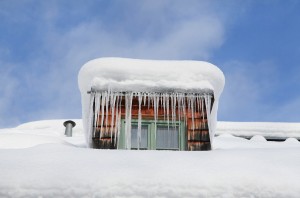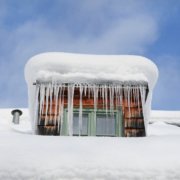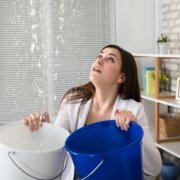Holiday Home Winter Maintenance: 10 checks to make now
Last Updated on October 28, 2015 by admin
 We spend all day talking to holiday home and cottage owners across the UK, advising on holiday home insurance needs and dealing with claims. Whilst of course our role is to provide peace of mind by way of a safety net for owners, we also truly believe that prevention is much better than cure. Therefore we offer guidance and advice which from our experience will not only prevent claims before they occur but also help keep you on the right side of the law. Think of us as your holiday letting guardian angel and today we’ll protect and guide you with our tips on holiday home winter maintenance. Here are 10 checks that we recommend you make now:
We spend all day talking to holiday home and cottage owners across the UK, advising on holiday home insurance needs and dealing with claims. Whilst of course our role is to provide peace of mind by way of a safety net for owners, we also truly believe that prevention is much better than cure. Therefore we offer guidance and advice which from our experience will not only prevent claims before they occur but also help keep you on the right side of the law. Think of us as your holiday letting guardian angel and today we’ll protect and guide you with our tips on holiday home winter maintenance. Here are 10 checks that we recommend you make now:
- Arrange your gas safety check
Holiday homeowners must, by law, make sure gas appliances in their properties are maintained and have a gas safety check carried out every 12 months by a registered Gas Safe engineer.
Check the last time you had your gas appliances serviced and gas safety checked.
2. Ensure you can turn the mains water stop tap on and off
Being able to turn the water on and off in your holiday home is an essential part of maintaining it, particularly if your property is due to be unoccupied during the freezing months of mid winter or should a joint or pipe fail at other times. Communicate its location in your Welcome Folder for easy reference of your guests during an emergency.
3. Check for dripping taps and repair if necessary
Whilst the slow drip of a tap may seem relatively innocuous in isolation, when thrown forward over a longer period of time, it could cause significant damage in your holiday home, particularly if the issue is part of a larger problem.
4. Check your loft space lagging is sufficient
At the height of the cold spell in 2010, one of the coldest winters in recent memory, insurers dealt with 3,500 claims for burst pipe damage every day. If your pipes burst they can cause serious damage (£7,000 on average) and leave your holiday home uninhabitable or needing extensive repair.
Check that your loft space, water tank and pipes are sufficiently lagged; remember a pipe can be susceptible to burst at any temperature beneath 6c.
5. Programme your central heating unit
If your holiday home is due to be unoccupied for any length of time, ensure you’ve programmed your central heating to maintain a minimum temperature throughout your holiday home, including behind those kitchen units where pipes are hidden ( of above 7c) and / or that the water supply has been drained and turned off.
6. Review your fire and general risk assessments
In order to be effective your fire and risk assessments should be reviewed on a regular basis, allowing your policies to evolve and minimise the risk to your guests. With the summer season now over, take stock of any incidents that may have occurred and put in place measures to minimise the chances of them happening again.
7. Visually check your electrical appliances
Whilst it isn’t a legal requirement to officially PAT (Portable Appliance Test) your appliances each year, it is good practice. You should at least complete a visual check of all electrical goods in your holiday home for any obvious signs of defect (frayed wires for example). If there are signs of wear and tear have the appliance checked by a qualified electrician, or replace as necessary.
8. Have your chimney swept
Whilst many of us will revel in the idea of a glass of wine or local ale in front of a roaring fire they do come with safety considerations and risks; there are approximately 6,000 chimney fires in England each year.
One of the most frequent causes of chimney fire is infrequent sweeping and cleaning. A chimney should be swept on following frequency (as a minimum):
- Smokeless fuel – at least once a year
- Wood – quarterly when in use
- Oil and gas – once a year
9. Visually check your gutters and roof for damage or loose slates
Aside from tree branches, falling roof tiles account for the highest number of insurance claims caused by storm damage across the UK.
If there is visible damage to the slates on your holiday home roof you should speak with a professional as soon as possible. Don’t forget to clear your gutters, downpipes and drains of leaves and debris that may cause them to block.
10. Check smoke and carbon monoxide detectors
Keep a log of the last time your alarm system was serviced and if battery operated or assisted, replace batteries and also make a note of this together with a schedule for regular testing.
Further Holiday Home Winter Maintenance Guidance
You may also find the following post on preventing slips and trips of interest:
- Limiting the risks of slips and trips in your holiday home
- Essential decking maintenance for holiday lets
- Reducing the risk of chimney fires
- Preventing the 5 most common causes of fire in holiday homes
- Focus on preventing carbon monoxide poisoning in holiday homes
- Fire Safety of furniture and furnishings in your holiday home
- Maintaining electrical appliances in your holiday home
- 10 steps to revive your holiday homes exterior
- 10 steps to revive your holiday homes interior
Boshers offer specialist holiday home insurance to owners across the UK. For more information on how a specialist insurer can help and support your holiday home business, please give us a call on 01237 429444.




Leave a Reply
Want to join the discussion?Feel free to contribute!